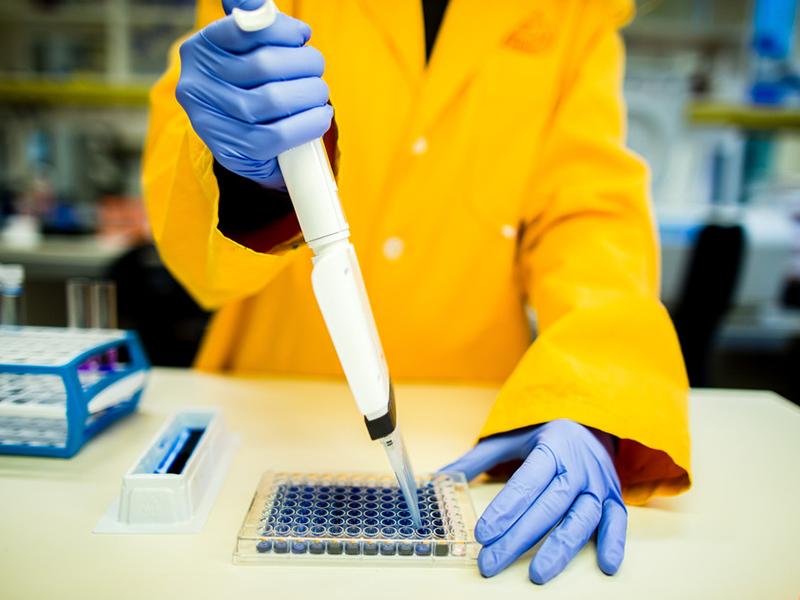
How medical education can benefit from global challenges
You may also like
The emergence of the novel coronavirus not only drew global attention to the healthcare sector, it has also raised the expectations on higher education, underlining the need for rapid response, adaptation, flexibility and innovation.
However, the Covid-19 pandemic is not an isolated case; medical and health sciences training has always been at the centre of global challenges. Now, the dynamic development of the healthcare sector, the doubling of knowledge in the medical field every two years, and global issues such as ageing societies and the internationalisation of higher education all demand a paradigm shift in the way we think about training doctors and healthcare workers. The response to Covid-19 can show how a university of the 21st century might understand and address the changing needs of the society and the profession itself. It is essential that we act as pioneers and generate new knowledge, internationally competitive educational programmes, procedures and patents.
- Spotlight: post-Covid, what has higher education learned?
- Develop the skills of the future through challenge-based learning
- What does a 21st-century research and science system look like?
Here are lessons medical education can take from the pandemic.
1. The importance of practice-oriented training
Our goal is to train flexible, versatile healthcare professionals who enjoy challenges, are open to innovation and, by graduation, have gained significant practical experience. The recently reformed curriculum of Semmelweis University places strong emphasis on practical training, with students actively involved in patient care and clinical practice. The reform, made in the 2019-20 academic year (the university’s 250th anniversary), started a bit earlier than the pandemic, but Covid justified its importance; it was easier to involve students in assisting with outbreak-related work such as administering vaccinations and tests.
The medical profession is a multidisciplinary field, requiring professionals to develop a comprehensive view of interrelated areas. A doctor of the 21st century must be capable of independent critical thought, excel in decision-making in both diagnostic and emergency situations, and be able to specialise and pursue lifelong learning. Rapid changes in the medical sector require a change of curricula and the ability to follow trends. The importance of this attitude has been justified by the pandemic.
2. International cooperation is essential
As the pandemic has shown, international university alliances are crucial to tackling global challenges. The wider use of online platforms has accelerated information flows and has made collaborative projects more efficient. It has also facilitated the sharing of good practices. Cooperative research and education projects with a multidisciplinary approach allow for a continuous transfer of knowledge between institutions and among disciplines, enhancing scientific progress and opening new horizons. The accumulation of good practices and general knowledge from various geographical, social, scientific and political contexts results in a wealth of know-how that can be adapted to local conditions.
3. Approach links between research and industry with a business mindset
Education and research go hand in hand, and strengthening the relationship between science and clinical practice is crucial to training the doctors of tomorrow. This approach also involves the creation of an innovation ecosystem, where science meets RDI-related commercial activities, while universities’ professional competence and research capacity meet the needs of market players. The knowledge generated in universities is not supposed to be used in an exclusively academic context. Facilitating interdisciplinary knowledge is what we have to focus on, and one very important aspect of this is a business mindset. At a university that meets 21st-century expectations, researchers, inventors, start-ups, industry stakeholders, businesses and investors are in an interactive and fruitful relationship, in order to evolve together. In other words, a university of the future needs to forge closer ties with the business community, promoting the market use of knowledge accumulated at the institution and increasing the social and economic impact of research.
4. More independence in the operating environment
A higher education institution of the future should be competitive and able to respond to the demands of the market and the knowledge-based-industry environment. In Hungary, universities were previously maintained by the state, but a more flexible operating and funding structure became necessary for institutions to be proactive members of the global higher education market. In August 2021, a “foundation-based model” was introduced in most Hungarian higher education institutions, including Semmelweis University. This new sense of independence has allowed us to rethink our development priorities, redistribute our financial resources and build new academic and industry connections, while the state remains a major supporter and funder.
5. People and human resources are at the heart of it all
The pandemic has highlighted the importance of physical and mental well-being. A university’s greatest asset, and the key to its capacity to innovate, is its human capital, and its excellence is reflected in the way its citizens feel. No matter how advanced science is, the human factor will always be paramount in this field. That is why the good health and well-being of our students and staff is a priority at our university. For example, our Institute of Behavioural Sciences is providing student and staff counselling in not only Hungarian but also in English and German. The university has also relaunched telephone help and crisis lines, and training materials are being developed for students involved in volunteering to help them prepare for the most difficult situations. I believe that for a university of the future, the mental health of students and professionals has to be a strategic aspect one must always keep in mind.
Béla Merkely is rector and head of the department of cardiology in the Centre for Cardiology at Semmelweis University in Budapest, Hungary.
If you would like advice and insight from academics and university staff delivered direct to your inbox each week, sign up for the Campus newsletter.




